The beautiful part about encouraging your children to have an appreciation of science is that you don’t need a college degree in science. In fact, you may have been like me, an individual who only took the recommended science courses or you may be someone who cringed throughout their chemistry class and didn’t even touch Physics. I don’t know a lot about science but I do know enthusiasm and about having fun. Therefore, when my kids and I do science experiments at home, we are always enthusiastic and having fun!
As my children are toddlers, here are some suggestions of strategies I have incorporated into our science experiments to encourage their appreciation of science.
Mommy University Presents
Methods to Encourage a Love of Science
The Before Conversation
It is all about the ooohh’s and aaahh’s! Before I begin the experiment, I review the instructions, components and tools we will be using. I make sure to include my children in this discussion as I frequently ask them to label everything and seek their input as to what might happen. Depending on the experiment, you may want to include narration as the project occurs.
The After Conversation
Ask lots of questions! Don’t worry about knowing the answers to why things happened in the experiment. Scientists don’t know the answers to some of the questions raised by their investigations. The purpose of the conversation is to focus on the process. Tap into your child’s curiosity. You can keep the questions open-ended to prompt their own answers. Open-ended questions are typically the what, who, how and where questions that encourage the responder to answer using words that don’t involve “yes” or “no.” You can also ask about differences that they observe which can include:
- Texture
- Shape
- Color
- Smell
- Size
- Weight
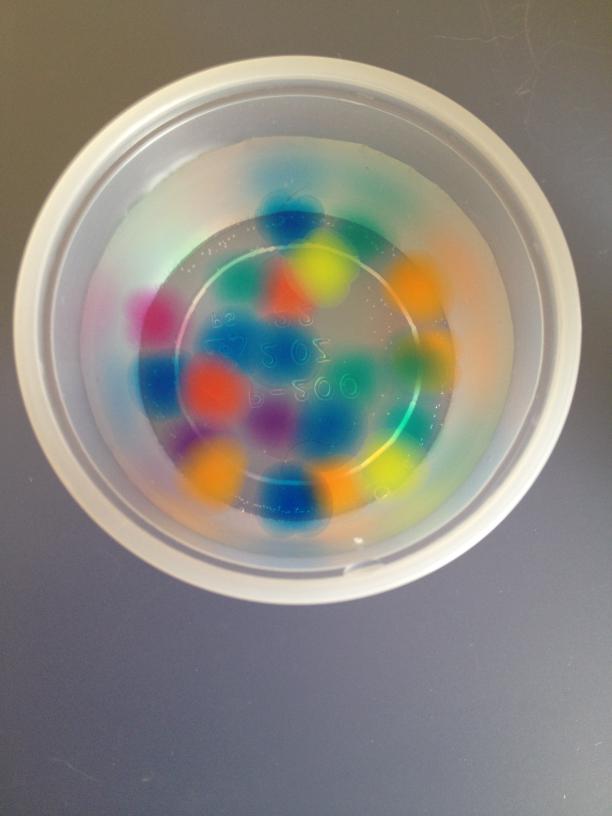
Water beads begin tiny and dense in color but as they absorb water they increase in size as the color becomes more diluted. These are great for toddlers to observe increasing size and can later be added in a sensory bin.
Sensory Input
Depending on the experiment, you can incorporate sensory input. For the egg experiments I have done at home, I knew that it would be okay for the children to touch the eggs, and this opportunity provided them tactile feedback. Some science experiments sold in stores involve water beads which is fine for children to touch but not if the child has the potential to put them in their mouth. Be conscientious of changes in weight and if it is possible for children to hold the products. Some science experiments will involve strong odors which offer plenty of observations to take place. How would they describe the smell?
Journaling
I cannot take credit for this suggestion. A college friend posted on Facebook a photo of his beautiful daughter drawing in her science journal which two years later I still remember. As my children are far too young to write in a journal, I have begun asking them to draw what they see. I then write down some simple sentences describing our results and read it to them. Drawing is great for children to develop their fine motor skills needed to write. Writing down the words and reading it back to them reinforces the importance of reading and writing.
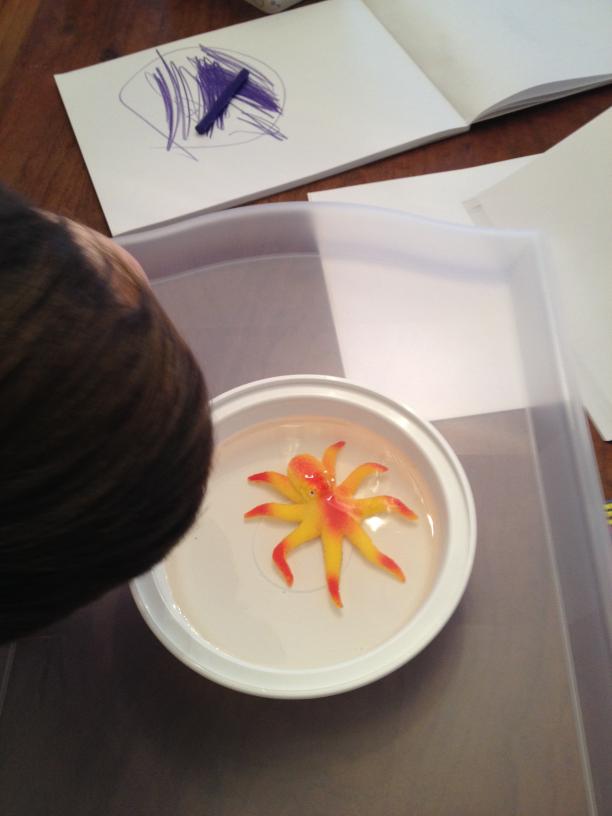
This is one of the first times we asked my son to draw what he saw. Each time we see a huge improvements in his confidence and skills.
Follow Their Lead
When researching different strategies, follow the direction of your children’s interests and then begin an investigation. Science experiments do not need to be complicated, however, they do need to be relevant. I cannot say that my child began asking scientific questions but after a few experiments he did begin to ask for more.
After a snowstorm, my husband went outside to shovel the snow and put de-icer down on the pavement. My son began asking the “why” question and my response involved a basic explanation but what followed was a simple science experiment to demonstrate how salt breaks down ice. We froze different colored blocks of ice and placed them in a plastic tub. I let the kids sprinkle ice to see what paths were formed and how long it took the ice to melt. Take your child’s interests, encourage the questions, and investigate.
The Buy In
Any good scientist needs tools to further their experiments. Some of my tools we purchased at the dollar store such as a bug catching kit and the grow animals (this is an item that when placed in water will expand). There are other tools that can augment a little child’s imagination such as magnifying glass kits and safety goggles. If there is a genuine passion then look at science sets and kits. I think these are great rewards and tools that can enhance your child’s experiments but also their appreciation of science.
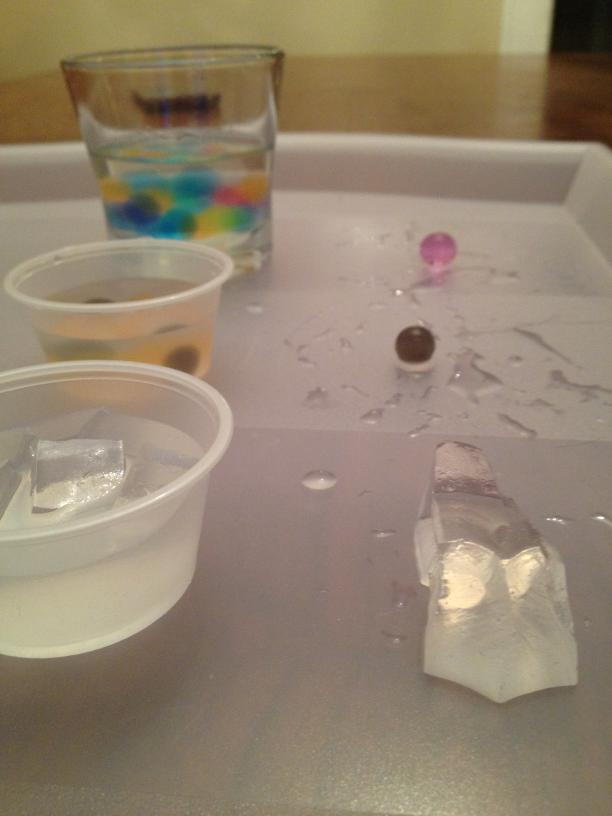
This was part of a science kit on absorbent polymers. Science kits are great as they include all the necessary tools and when reading the instructions you are able to teach your kids as you learn as well.
Science is quickly becoming an interesting topic in our household and as a family we are exploring together. I don’t have an expectation that my children will pursue a career in science, but I do believe in fostering their appreciation of science as well as their enthusiastic curiosity.
How do you encourage an appreciation in different subjects?
You may also enjoy:
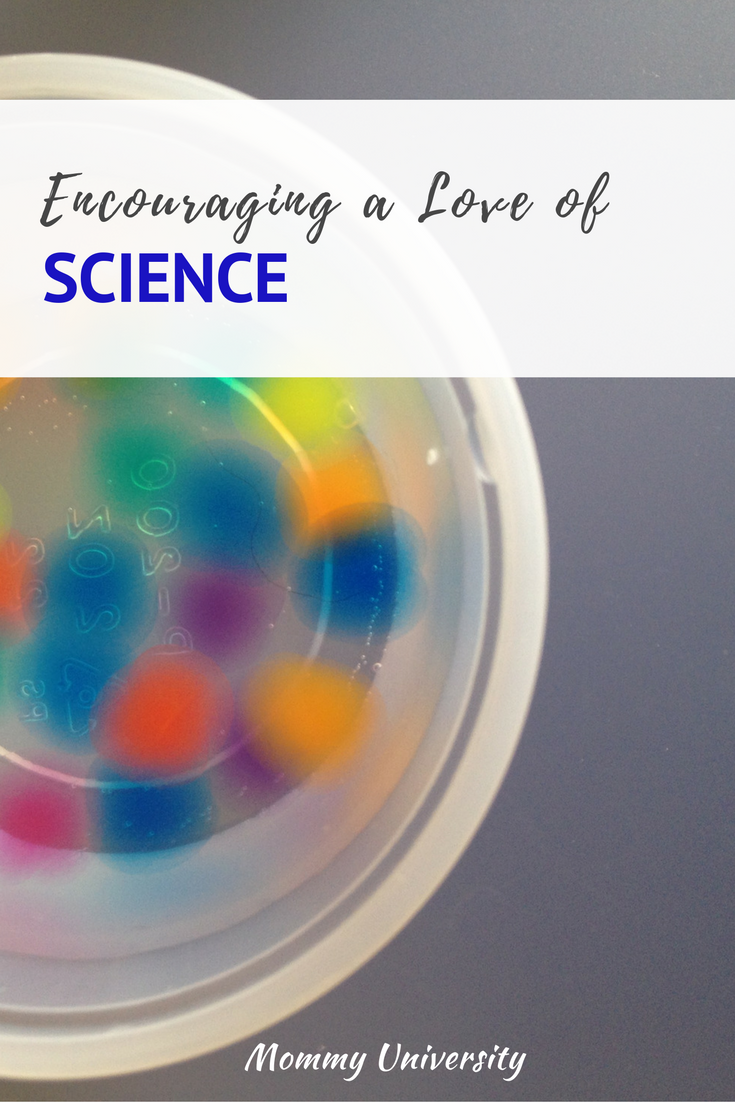
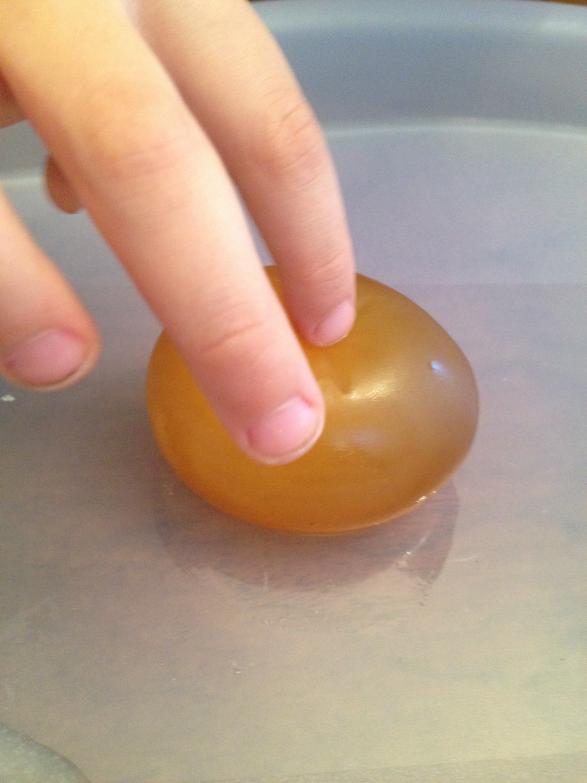
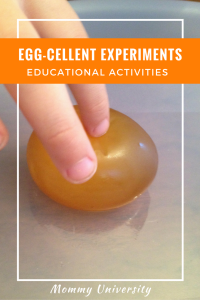
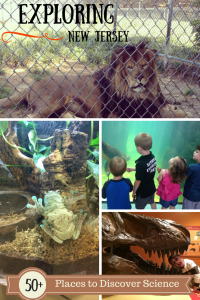
My son loves doing Science experiments! Love this!
Thank you so much Sarah!